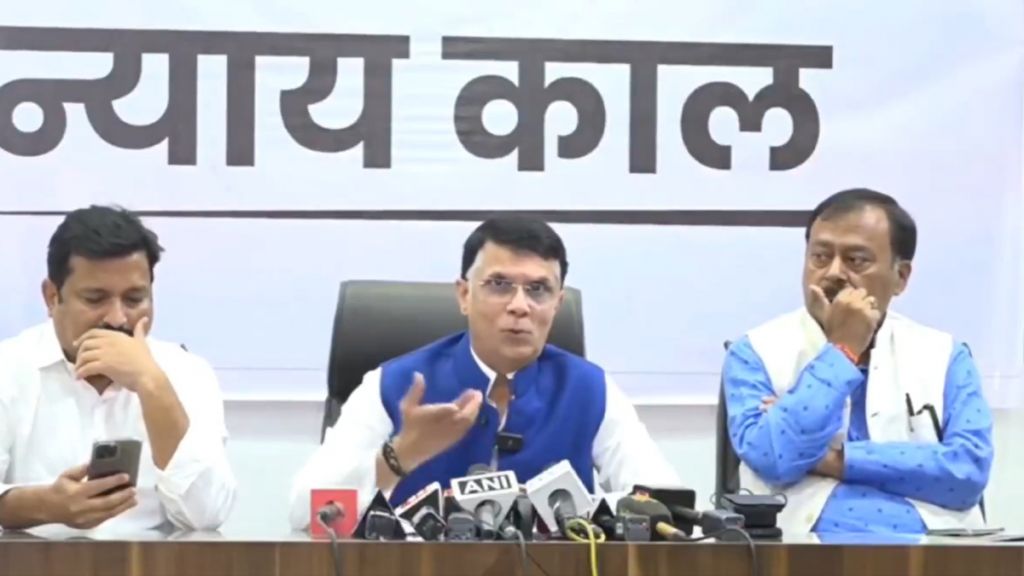
Mumbai: Pawan Khera, chairman of the media and publicity department of the All India Congress Committee (AICC), launched a scathing attack on the BJP-led government, accusing it of worsening inflation and burdening the common man.
He claimed that the prices of essential commodities, including food oils and groceries, have skyrocketed under the current government, severely affecting middle-class and ordinary families.
Khera highlighted that the price of garlic has surged to Rs500/kg, while onions now cost Rs100/kg. “The escalating prices of essential goods have wrecked the kitchen budgets of average families,” he said.
While the Mahayuti government in the state is giving Rs 1,500 to women every month, every Marathi family was being robbed of Rs 90,000 due to inflation, he claimed.
In his remarks, Khera criticised the BJP for diverting attention from real issues by using provocative slogans like 'batenge, katenge', 'vote jihad' to rally support. “This is an attempt to deflect public attention from the real issues plaguing the people, especially the rise in prices of basic necessities,” he added.
Speaking at a press conference at Tilak Bhavan, Khera also took aim at Prime Minister Narendra Modi and BJP leaders who, according to him, prefer discussing global issues rather than addressing the problems faced by the people of India. He also referenced Modi's statements about infiltration during an election rally in Jharkhand, saying, “Modi has been in power for 11 years, so how is infiltration happening under his watch?”
Khera also questioned the BJP’s credibility, arguing that while the government spends lavishly on political campaigns and accusations, it fails to address the real concerns of the public. 'The BJP seems to think people are fools, but they are well aware of its tactics.
Khera argued that if the BJP can allocate funds for the purchase of votes, as seen in the alleged bribery case of Rs 50 crore for Maharashtra MLAs to topple the MVA government, then there should be no difficulty in directing funds towards welfare schemes for the public. "If there is money for buying votes, there is surely money for the welfare of the people," Khera concluded.